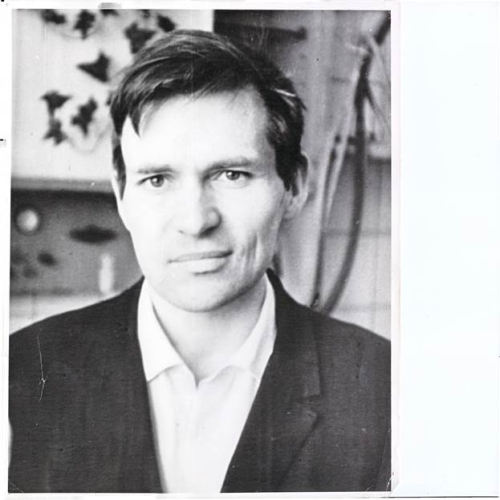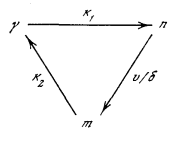 A famous Soviet biophysicist who had proposed the kinetic theory of muscle contraction. The theory made it possible to quantitatively describe various modes of contraction of striated muscles using one set of parameters and to predict a number of new facts that were later discovered experimentally. In subsequent years, V.I. Deshcherevsky carried out a theoretical and experimental analysis of the interaction of the main muscle proteins in solution. The idea of the cyclic mechanism of cleavage of ATP by muscle proteins allowed him to write a kinetic biochemical scheme for the functioning of muscle proteins and determine its main kinetic constants. Based on the study of the interaction of actin with the troponin-tropomyosin system, he built a mathematical model for the regulation of actomyosin systems by calcium ions, which reflects well the complex patterns of the biochemical kinetics of ATP hydrolysis in such systems.
A famous Soviet biophysicist who had proposed the kinetic theory of muscle contraction. The theory made it possible to quantitatively describe various modes of contraction of striated muscles using one set of parameters and to predict a number of new facts that were later discovered experimentally. In subsequent years, V.I. Deshcherevsky carried out a theoretical and experimental analysis of the interaction of the main muscle proteins in solution. The idea of the cyclic mechanism of cleavage of ATP by muscle proteins allowed him to write a kinetic biochemical scheme for the functioning of muscle proteins and determine its main kinetic constants. Based on the study of the interaction of actin with the troponin-tropomyosin system, he built a mathematical model for the regulation of actomyosin systems by calcium ions, which reflects well the complex patterns of the biochemical kinetics of ATP hydrolysis in such systems.
Graduated from the Department of Biophysics, Faculty of Physics, Lomonosov Moscow State University (02.1963). After graduation, he worked at the Laboratory of Physical Biochemistry of the Institute of Biophysics of the USSR Academy of Sciences, Pushchino. Award winner of the Lenin Komsomol Prize of the Moscow Region (06.1969). PhD thesis for the degree of candidate of physical and mathematical sciences named “The kinetic model of muscle contraction and its experimental verification” was defended at the Faculty of Physics, Lomonosov Moscow State University, 20.05.1970.
